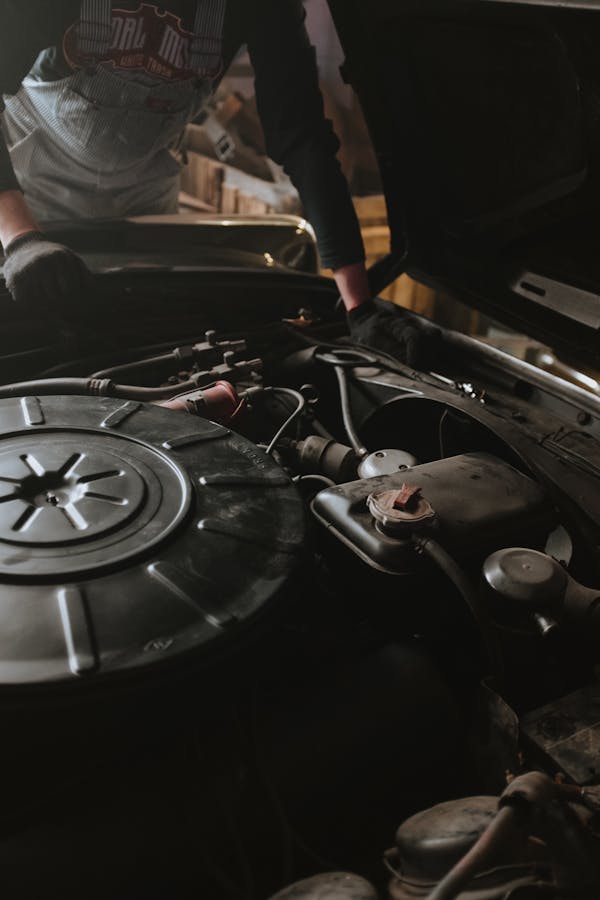Mechanics are automotive professionals who inspect and repair cars. They often work in garages and may use a wide variety of tools and reference material.
Despite the stereotype of greasy overalls and a brash demeanor, mechanics have a wide range of skills. Attending a trade school can help aspiring mechanics develop the technical knowledge employers seek in entry-level candidates. Check out auto repair for more information.
Job Duties
Mechanics inspect and repair equipment, machinery, and vehicles. They also assemble and disassemble parts. They must understand mechanical schematics and blueprints accurately. They are required to monitor inventory and order new parts as needed. They are also expected to offer consultation on maintenance and preventative procedures to machine and vehicle users.
They work with a wide range of tools and specialized equipment, including wrenches, diagnostic scanners, and lifts. They must have good eye-hand coordination and manual dexterity. Mechanics must also be willing to work in dirty and cluttered conditions.
They must keep up with industry developments by attending workshops or reading technical manuals. Most mechanics are full-time employees, but about 14 percent are self-employed. The rest work for various companies or are independent contractors at private garages. Providing this information in your job ad will help you attract more qualified candidates. Getting too generic in your description can lead to applications from people who are not well-suited for the position.
Education and Training Requirements
Mechanics are generally required to have a high school diploma and undergo vocational training at a trade school or community college. They also need to pass an Automotive Service Excellence (ASE) test. The exam covers a broad range of topics, including vehicle maintenance and repair, electrical systems, engines, and brakes.

Most mechanics also need technical aptitude, basic math skills, and a willingness to learn. They also need to keep up with new tools, technologies, and equipment. In addition, they must maintain detailed records of the work that they perform.
Mechanics can advance within their field by becoming shop foremen, auto shop owners, or floor supervisors. They can also become car dealership salespeople or insurance adjusters. However, these careers involve less direct interaction with vehicles and require different skill sets. Having a formal education can make a mechanic more attractive to employers and increase their earning potential. Getting a degree also helps them gain confidence in their skills, which can boost their professional performance.
Working Conditions
Mechanics work in a variety of settings, including auto repair shops, oil refineries, and manufacturing plants. Depending on their employer, mechanics may collaborate with other technicians, engineering specialists, or administrative assistants.
Whether in an auto shop or at a customer’s home, mechanics must adhere to strict safety standards. This includes wearing protective gear such as gloves, eyeglasses, and safety vests. In addition, they must use specialized tools to measure engine power and perform other diagnostic tests.
Mechanics must also be willing to learn and adapt as technology changes. The days of the uneducated grease monkey are long gone, and most mechanics undergo extensive vocational training and certification before starting their careers. Those with advanced degrees or additional training may be able to advance to supervisory positions. Some may choose to specialize in certain types of equipment or vehicles. Others may opt to open their own shops. The work can be greasy and dirty, but most mechanics grow accustomed to these conditions over time.
Salary
Mechanics earn good salaries, depending on their specialization and the industry. They can find jobs in repair shops, automobile dealerships, automotive manufacturing plants, construction sites, or equipment rental companies.
Among other things, mechanics are responsible for diagnosing issues, repairing or replacing machinery or vehicles, and conducting routine preventive maintenance to ensure that their work is operating correctly. They also inspect and clean components, lubricate moving parts, and conduct safety checks.
Some mechanics may specialize in specific types of machinery or vehicles, such as motorcycle mechanics who specialize in repairing and maintaining two-wheeled vehicles, RV (recreational vehicle) mechanics who work on systems found in recreational vehicles, or industrial mechanics who work with machinery used in industrial settings, like conveyors and pumps. Those who work as auto mechanics may be employed in independent repair shops or in auto dealerships that service several makes and models of cars. In some cases, mechanics can be hired by fleet maintenance departments to work on vehicles owned by organizations or governments.

